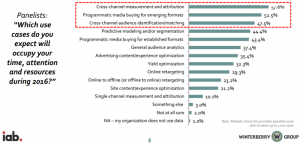— September 13, 2019
One key to the success of your project is finding the right person to lead CRM migration. Since CRM is a technology-driven tool, businesses often toss the job at the CTO or COO. Other times, the director of marketing or sales gets tasked with the job, since CRM is all about customer relationships. A third common option is a midlevel IT manager, as he or she usually has the best technical skills and has more time to learn the software than upper management.
The common denominator in these frequent choices is that executives select the CRM project manager based on who is convenient, rather than choosing the person who’s best suited for the project.
Unsurprisingly, this tendency frequently sets the newly appointed coordinator—and the CRM project itself—up for failure. But there’s good news: You don’t have to set yourself up for a fall. Instead, you can pick the right project manager for the job.
The right person should have the following attributes:
-
The Ability to Plan
CRM implementation requires a clear strategy. A general idea about the direction of the project won’t cut it. The CRM project manager (PM) needs to have strong planning skills, the ability to put data into actionable items, AND the capacity to make related deadlines.
-
Time
When implementing a CRM system, one common mistake involves tasking an already busy employee with leading the charge. But if your PM doesn’t have time to lead the project, how can he or she properly do the job?
Since the PM needs to have the implementation front and center in his or her workload, you need to shift some of this person’s other responsibilities. Otherwise, it may not happen.
-
A Passion for the Project
If a PM thinks of the CRM project as just another task, he or she may not be the best fit for the job. In order to make the CRM implementation a success, you must understand how each of the system’s processes work, how they fit together, and why you should create a new framework to adapt these uses. In most cases, the person tasked with running the CRM implementation only has limited knowledge of the way the system works behind the scenes. But since CRM systems take time to learn, someone excited about implementing it is a better choice for the job.
-
An Understanding of the Technology
All CRM systems are complex, even the user-friendly ones. While a CRM PM doesn’t necessarily need to be able to debug reports or understand programming languages, he or she does need to have a firm grasp on the basic technology of the system.
Luckily, this understanding is easier to gain than you might think. A CRM PM can work closely with the implementation firm during user testing, and he or she can receive additional training that will help facilitate support issues. This protocol will allow the PM to troubleshoot smaller problems on his or her own, and serve as a liaison between the staff and the CRM provider.
-
Strong Communication Skills
Proper training is a huge part of any successful CRM implementation. The PM needs to be able to help his or her team members throughout the implementation process—and beyond. By walking users through different parts of the CRM, you can “translate” technical concepts into plain English and patiently explain the CRM’s processes to users who may be hitting a wall of frustration.
Team members with a wide range of technical skills need help with issues that are unique to their department’s use case. So to work through this implementation, the PM will need to lead the charge.
The biggest part of a successful CRM implementation firm is getting your team to actually use it. Don’t set your team up to fail. Find the right person to lead the implementation, not just who is available.
Business & Finance Articles on Business 2 Community
(22)







